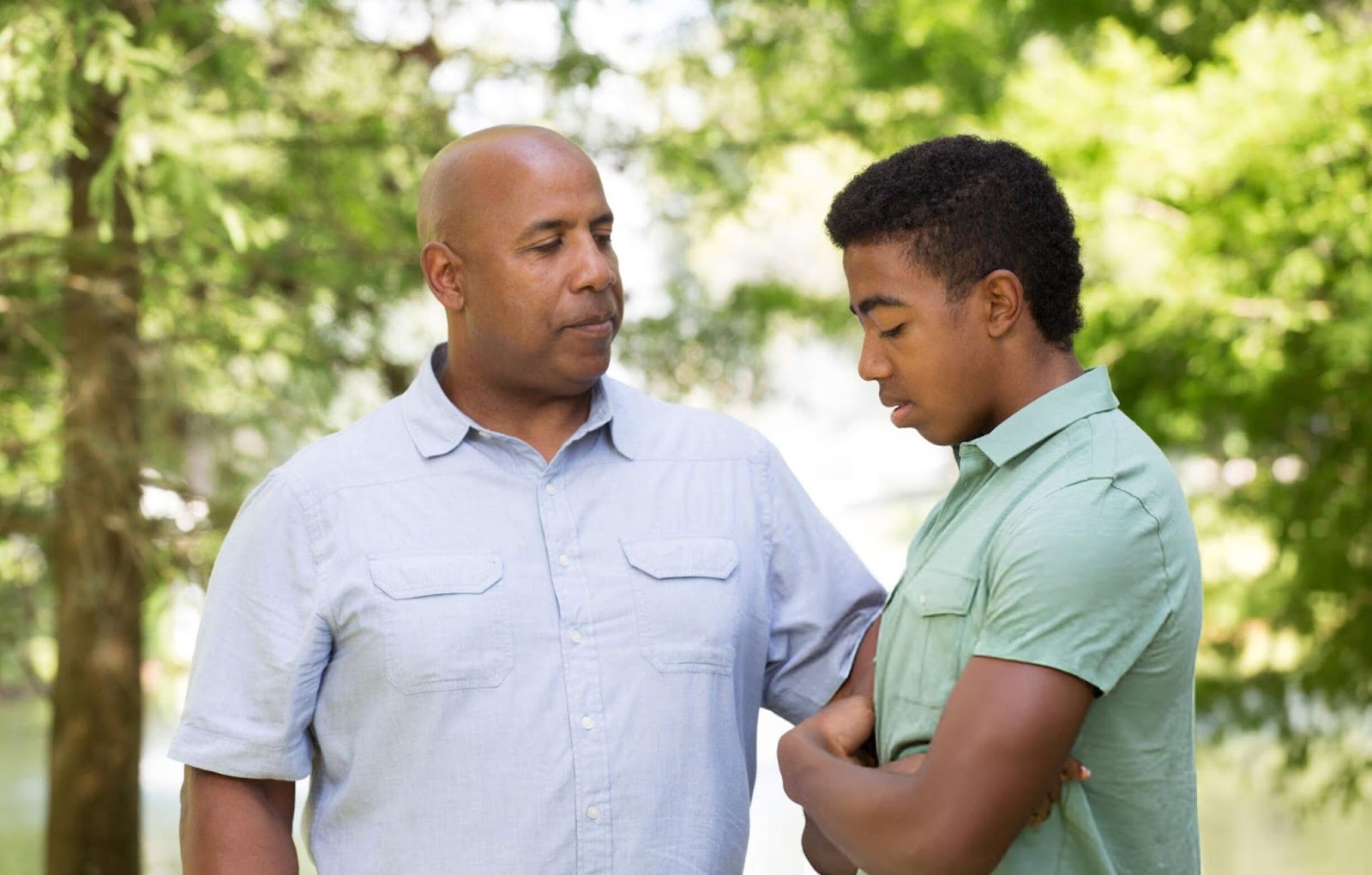You remember how you were hit in the stomach when you found out about the web of a lying teenager had been created. It could have been a friend whose parent told you or it could have been an accident that revealed the truth during an otherwise informal chat. The instant when the trust is broken can be compared to seeing the first fall of the little one on the bike, but this time the knees are scraped on the heart, and there will be no Band-Aids and the wounds will not heal.
and now, when you read this, with the same knot in your stomach, just take a deep breath. You are not the only parent to come through parenting maze, and your adolescent liar is not a future serial liar. As a matter of fact, the studies prove that 98 percent of teens lie to their parents which means that this issue of lying is as widespread as teenage acne and as curable with the proper intervention.
You may be shocked to learn the reality of the teenage lie, however, it is usually not as bad as it seems, it is mostly because of growing up, the beautiful, messy, complexity of growing up. The brain of your teen is massively being constructed to include constructing of neural highways at the same time destroying the childhood pathways. Realizing this truth of development is your initial step in healing the trust between you and developing a stronger bond within the family.
The Secret World of Teenager Lying: What Research Reveals

Picture your teenager’s mind as a bustling construction site where emotions, independence, and social pressures collide like cement mixers at rush hour. The statistics paint a vivid picture of just how prevalent lying becomes during these formative years.
According to recent studies, 75 percent of adolescents lie, with an average of nearly three lies a day. But 60 percent of youth surveyed admitted to telling up to five lies daily. These numbers might feel overwhelming, but they actually illuminate an important truth: your teenager lying isn’t necessarily a reflection of your parenting or their character.
The research gets even more fascinating when we dig deeper into the lying teenager psychology. Young adults become particularly skilled at deception during their teenage years, with studies indicating they’re actually “the best liars” among all age groups. However, this skill isn’t necessarily something to fear—it’s often a sign of cognitive development and social awareness.
Why do teenagers lie so frequently? The answer lies in the perfect storm of biological, psychological, and social factors swirling through their daily experience. Their prefrontal cortex, responsible for decision-making and impulse control, won’t fully mature until their mid-twenties. Meanwhile, they’re navigating increasing independence, peer pressure, and the overwhelming desire to avoid disappointing the people they love most.
Decoding the Heart of Why Do Teenagers Lie
Understanding the motivations behind teenage lying is like learning a new language—once you know the vocabulary, everything starts making sense. Let’s explore the most common reasons your teen might choose fiction over facts.
The Avoidance Dance
Most lying teenagers do so to dodge consequences, much like we might fudge the truth about how many cookies we ate or whether we really flossed our teeth. Your teen’s version might involve curfews, grades, or that party where parents definitely weren’t home. They’re not inherently dishonest; they’re human beings trying to avoid uncomfortable situations.
The Independence Struggle
Adolescence is nature’s way of preparing kids to leave the nest, and sometimes that preparation involves testing boundaries through deception. When your teenager lies about where they’re going or whom they’re with, they might be flexing their independence muscles rather than deliberately betraying your trust.
The Protection Instinct
Sometimes lying teenagers do so to protect—either themselves from perceived judgment or you from worry. A teen might lie about struggling academically because they don’t want to disappoint you, or they might fabricate stories about their social life to avoid concerning you about their friendships.
The Social Survival Strategy
Peer pressure creates a unique ecosystem where truth and social acceptance sometimes feel mutually exclusive. Your teenager might lie about their interests, experiences, or family rules to fit in with their social group. It’s not about rejecting your values; it’s about surviving the intense social dynamics of adolescence.
Recognizing the Red Flags: When Teenager Lying Becomes Concerning
While occasional lying is developmentally normal, certain patterns warrant closer attention. Like a parent’s intuition sensing a fever before the thermometer confirms it, you can learn to recognize when your teenager’s lying has crossed from typical adolescent behavior into more concerning territory.
Compulsive Patterns
When lies become as automatic as breathing, flowing effortlessly even about trivial matters, it might signal deeper issues. A teenager who lies about everything—from what they had for lunch to whether they brushed their teeth—may be developing problematic patterns that require professional intervention.
Lies with Serious Consequences
Some lies carry more weight than others. When your teenager lies about dangerous activities, illegal behavior, or situations that could harm themselves or others, immediate action becomes necessary. These aren’t typical teenage boundary-testing lies; they’re potential safety issues.
Accompanying Behavioral Changes
Pay attention to the constellation of behaviors surrounding the lying. Dramatic personality changes, withdrawal from family activities, declining grades, or changes in friend groups alongside increased deception might indicate underlying mental health concerns, substance use, or other serious issues.
Inability to Come Clean
Most teenagers, when confronted with evidence of their lies, eventually admit the truth, even if reluctantly. A teenager who doubles down on obvious lies, creates elaborate stories to cover previous deceptions, or seems genuinely unable to distinguish truth from fiction may need professional support.
Ways Parents Can Reduce Teenage Lying: Building Bridges Instead of Walls
Creating an environment where truth feels safer than lies requires intentional effort and patience. Think of it as tending a garden—you can’t force trust to bloom overnight, but you can create conditions where it naturally flourishes.

Create a Judgment-Free Zone
The temperature of your initial response to difficult truths sets the tone for future honesty. When your teenager confesses to a mistake or poor choice, take a deep breath before responding. Your reaction in these moments teaches them whether honesty feels safe or dangerous in your relationship.
Practice phrases like “Thank you for telling me the truth” or “I appreciate your honesty, even though I’m concerned about this situation.” This doesn’t mean avoiding consequences altogether, but it means separating your response to their honesty from your response to their behavior.
Implement Natural Consequences Instead of Harsh Punishments
Ways parents can reduce teenage lying often involve rethinking their consequence strategies. Natural consequences—logical results that flow from the behavior itself—tend to be more effective than arbitrary punishments that feel disconnected from the offense.
For example, if your teenager lies about completing homework, the natural consequence might involve extra study time or loss of privileges until assignments are caught up. This approach helps them understand the connection between choices and outcomes without creating adversarial dynamics.
Model Transparent Communication
Your teenager watches how you handle difficult truths in your own life. When you make mistakes, admit them. When you’re struggling with something, share age-appropriate details about your problem-solving process. Show them that adults don’t have to be perfect to be trustworthy.
Consider sharing stories from your own teenage years—times when you made poor choices or felt torn between honesty and self-protection. These stories help normalize their struggles while demonstrating that people can grow and change.
How to Handle a Teenager Who Lies: Practical Strategies That Work
When you discover your teenager has lied, your response in those crucial first moments can either build bridges or create wider gaps. Learning how to handle a teenager who lies effectively requires both emotional intelligence and strategic thinking.
The Art of the Gentle Confrontation
Approaching your teenager about lying requires the delicacy of defusing a bomb while maintaining the firmness of setting boundaries. Start with curiosity rather than accusation. Instead of “I know you’re lying to me,” try “I’m getting some conflicting information about last night. Can you help me understand what happened?”
This approach gives your teenager an opportunity to come clean without losing face entirely. Many teens will take this opening to correct their story, especially if they sense genuine interest rather than a trap.
Focus on the Why, Not Just the What
Understanding the motivation behind the lie often matters more than the lie itself. When your teenager admits to deception, resist the urge to launch into a lecture about honesty. Instead, explore what made lying feel like the best option in that moment.
Questions like “What made it feel hard to tell the truth about this?” or “What were you worried would happen if you told me the real story?” can open productive conversations about underlying fears, pressures, or misconceptions.
Collaborate on Problem-Solving
Transform consequences into collaborative problem-solving sessions. Work together to identify what needs to change to prevent similar situations in the future. This might involve adjusting rules that feel unrealistic, improving communication strategies, or addressing underlying issues that make lying feel necessary.
Creative Punishments for Lying Teenager: Beyond Traditional Consequences
Sometimes traditional consequences miss the mark entirely, especially when dealing with the complex motivations behind teenage lying. Creative punishments for lying teenager situations can actually strengthen your relationship while addressing the behavior effectively.

Trust-Building Exercises
Instead of simply removing privileges, create opportunities for your teenager to rebuild trust through positive actions. This might involve extra check-ins, completing trust-building tasks, or taking on additional responsibilities that demonstrate reliability.
For example, a teenager who lied about their whereabouts might need to text regular updates for a week, not as punishment but as practice in transparent communication. Frame these requirements as “trust-building exercises” rather than punishments.
Community Service with Connection
Connect consequences to the impact of dishonesty by engaging in community service together. Volunteering at organizations that rely on trust and integrity can provide meaningful conversations about the importance of honesty in relationships and society.
Restorative Justice Approaches
Help your teenager understand how their lying affected others by facilitating conversations with those impacted. This might involve apologizing to teachers, friends’ parents, or family members who were affected by the deception.
The goal isn’t humiliation but genuine understanding of how dishonesty creates ripple effects in relationships and communities.
The Long Game: Rebuilding Trust After Teenage Lying
Healing from teenage lying requires patience that stretches like taffy—sometimes it feels endless, but the end result can be surprisingly sweet. Rebuilding trust isn’t about returning to the way things were; it’s about creating something stronger and more authentic.
Celebrate Small Victories
Acknowledge and appreciate moments of honesty, especially when your teenager chooses truth in situations where lying would be easier. These celebrations don’t need to be elaborate—sometimes a simple “I really appreciate you being honest about that” carries more weight than grand gestures.
Adjust Expectations Gradually
Trust rebuilding happens in increments, like a dimmer switch slowly brightening a room rather than a light switch flipping on instantly. Start with small opportunities for your teenager to demonstrate trustworthiness before gradually increasing freedom and responsibility.
Maintain Open Dialogue
Regular family meetings or one-on-one conversations about trust, honesty, and family expectations help prevent issues from festering in silence. These conversations shouldn’t focus solely on problems but should celebrate progress and address concerns before they become crises.
Remember that your lying teenager is still learning how to navigate complex social and emotional landscapes. The skills they’re developing now—including learning when and how to be honest—will serve them throughout their adult lives.
When Professional Help Makes Sense
Sometimes the challenges of dealing with a lying teenager exceed what families can handle alone. Recognizing when to seek professional support isn’t an admission of failure; it’s a demonstration of wisdom and love.
Consider professional intervention when lying patterns persist despite consistent efforts, when lies involve dangerous or illegal activities, or when lying appears alongside other concerning behaviors like substance use, self-harm, or significant mood changes.
Therapists specializing in adolescent development can provide family counseling that addresses underlying issues while teaching practical communication skills. Sometimes an objective third party can help families break negative cycles and establish healthier patterns of interaction.
Moving Forward: From Lying to Trust

It is uncommon that the way to re-establish a trusting relationship with your teenager after you discover he lied is a linear one. You will have setbacks, doubt periods and there are likely to be additional discoveries which prove frustrating. However, behind this difficult season is an amazing opportunity to gain a closer bond with your teenage child and guide them to have integrity in their lives that will last a lifetime.
The way you react to their lying teaches them some deep lessons about grace, responsibility, and being able to redeem themselves. By making the decision to understand instead of get angry, to be curious instead of accusatory, to be patient instead of punitive, you are demonstrating what sort of relationships they will want to develop in their own mature lives.
The road of every family to teenage lying seems to be different, yet the end of this path will always be the same young adults who realize that telling the truth is the best way to build strong relations instead of jeopardizing them. Your adolescent is discovering that the individuals who love them the most are able to deal with their flaws, errors and problems without abandoning them.
This reckless teen of today will be the truthful adult of tomorrow not due to the fact that he/she was punished to be truthful but because he/she felt the liberty and belonging that comes with truthful relationships with one another based on mutual respect and understanding.
Cheer up, tired parent. This year will be over, and the trust that you are slowly re-establishing, brick by brick, will be the basis of a lifetime of honest and loving relationship with your child. The teenager who lies in your house tomorrow is the trusted adult who is learning still, but is certainly worth your time, patience and unconditional love.



